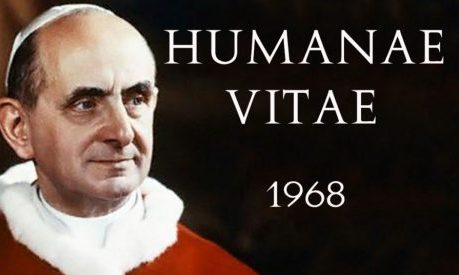This coming July, we will mark the 50th anniversary of Pope Paul VI’s deeply controversial encyclical letter Humanae Vitae.
I won’t bore you with the details of the innumerable battles, disagreements, and ecclesial crises that followed upon this text.
Suffice it to say that this short, pithily argued letter became a watershed in the post-conciliar Catholic Church and one of the most significant points of contention between liberals and conservatives.
Its fundamental contention is that the moral integrity of the sexual act is a function of the coming together of its “procreative and unitive” dimensions.
That is to say, sexual intercourse is ethically upright only in the measure that it is expressive of love between married partners and remains open to the conception of a child.
When, through a conscious choice, the partners introduce an artificial block to procreation—when, in a word, they separate the unitive and procreative finalities of the sexual act—they do something which is contrary to God’s will.
Again, within the context of this brief article I won’t detail the arguments for and against this position.
But I would like to draw particular attention to a remarkable passage in Humanae Vitae, namely section 17, in which Paul VI plays the prophet and lays out, clearly and succinctly, what he foresees as consequences of turning away from the Church’s classic teaching on sex.
Though he is convinced that artificial contraception is morally bad in itself, he’s also persuaded that it would, in the long run, adversely affect general societal attitudes regarding sex.
Here is a first observation:
“Let them consider how easily this course of action could open wide the way for marital infidelity and a general lowering of moral standards.
“Not much experience is needed to be fully aware of human weakness and to understand that human beings—and especially the young, who are so exposed to temptation—need incentives to keep the moral law, and it is an evil thing to make it easy for them to break that law.” Continue reading
Sources
- The Catholic World Report, article by Bishop Robert Barron, an auxiliary bishop of the Archdiocese of Los Angeles.
- Image:
